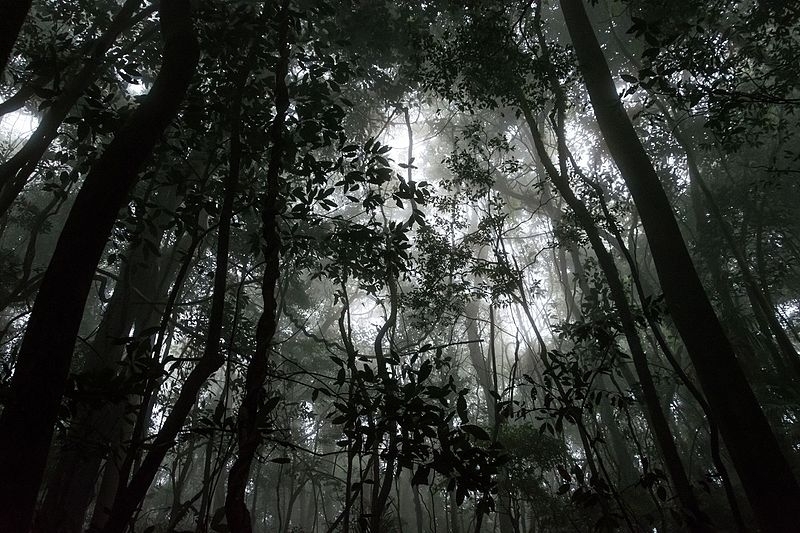

Dozens of scientists from several countries calculated upper limits to global and local temperatures if tropical forests are to survive (photo: Bruno Henning / Wikimedia Commons)
Dozens of scientists from several countries calculated upper limits to global and local temperatures if tropical forests are to survive.
Dozens of scientists from several countries calculated upper limits to global and local temperatures if tropical forests are to survive.

Dozens of scientists from several countries calculated upper limits to global and local temperatures if tropical forests are to survive (photo: Bruno Henning / Wikimedia Commons)
By José Tadeu Arantes | Agência FAPESP – To what extent can tropical forests withstand global warming, and how resilient are they in the face of anthropogenic change? A mega-study involving dozens of researchers from several countries has been conducted to try to answer these questions. It used data for 590 permanent forest areas located in tropical regions around the world and correlated climate variables with the forest carbon cycle. The findings are published in the journal Science in an article entitled “Long-term thermal sensitivity of Earth’s tropical forests”.
“The study shows maximum temperature to be the factor that most influences above-ground biomass. First, it reduces the forest’s capacity to assimilate carbon via photosynthesis and convert it into wood. Second, it increases tree mortality, which in turn increases carbon emissions and fuels global warming in a vicious circle,” Luiz Aragão, one of the Brazilian authors of the article, told Agência FAPESP.
Aragão, who until recently headed the Remote Sensing Division of the National Institute for Space Research (INPE), participated in the study via two projects funded by FAPESP: “Functional diversity of intact and regenerating Amazon, Atlantic Rainforest and Cerrado systems using hyperspectral imagery” and “Drought and fire interactions on secondary Brazilian vegetation”.
They are linked to a larger project, “BIOmes of Brasil – Resilience, Recovery, and Diversity: BIO-RED”, funded under an agreement between FAPESP and the UK’s Natural Environment Research Council (NERC).
For tropical forests to be able to adapt to climate change, global temperatures must not rise more than 2 °C above pre-industrial levels, in line with the targets set by the Paris Agreement, and locally the temperature of forest areas must not exceed 32.2 °C.
“This applies to natural forests not disturbed by human action,” Aragão said. “Tropical forest resilience is even more undermined by fire, clearcutting and fragmentation, quite apart from global warming.”
These occurrences destroy plant cover, release large amounts of carbon into the atmosphere and reduce forest humidity so that forests are affected by the intensification of drought due to climate change as well as localized drought.
“Tropical forests are very resilient, but there are limits that cannot be surpassed,” Aragão said. “This study points to such limits: a global average of 2 °C above the pre-industrial average, and a local temperature of 32.2 °C. With regard to the impact of human activity, modeling studies show that destruction of 30%-40% could push even a forest as exuberant as the Amazon to a point of no return. Fragmentation creates extremely vulnerable borders and negative edge effects.”
Earth has experienced high temperatures before, he added, but these were natural long-term processes that enabled species to adapt. The ongoing changes are not natural but anthropogenic, and are happening so fast that adaptation is impossible in many cases.
“Our study shows that we still have a chance to save the tropical forests and all they represent for the planet’s equilibrium, but it’s essential to keep the global temperature rise within 2 °C. And locally we must protect our forests from predatory activities of all kinds,” Aragão said.
The article “Long-term thermal sensitivity of Earth’s tropical forests” can be retrieved from: science.sciencemag.org/content/368/6493/869.
Republish
The Agency FAPESP licenses news via Creative Commons (CC-BY-NC-ND) so that they can be republished free of charge and in a simple way by other digital or printed vehicles. Agência FAPESP must be credited as the source of the content being republished and the name of the reporter (if any) must be attributed. Using the HMTL button below allows compliance with these rules, detailed in Digital Republishing Policy FAPESP.





